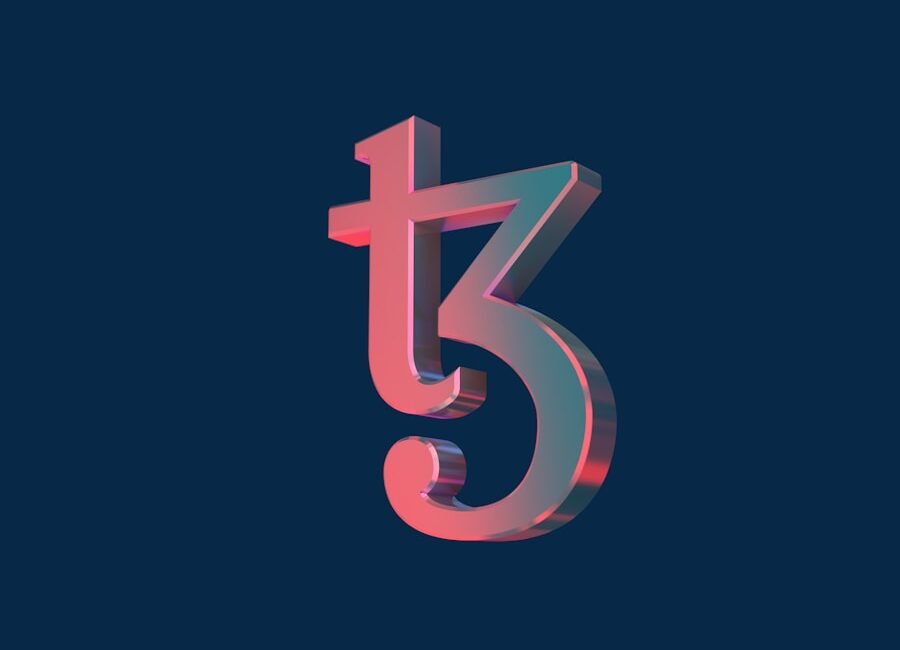Blockchain technology has been making waves in recent years as a revolutionary way to safeguard data privacy. At its core, blockchain is a decentralized, distributed ledger that records transactions across a network of computers. Each transaction is stored in a “block” and linked together in a chain, creating a secure and transparent record of data. This technology was originally developed as the underlying framework for the digital currency Bitcoin, but its potential applications extend far beyond cryptocurrency. Blockchain has the potential to transform the way data is stored, shared, and secured, making it an invaluable tool for protecting sensitive information in an increasingly digital world.
The key innovation of blockchain lies in its ability to provide a tamper-proof and transparent record of transactions. By distributing the ledger across a network of computers, blockchain eliminates the need for a central authority to verify and authenticate transactions. This not only reduces the risk of data breaches and cyber attacks, but also ensures that the integrity of the data is maintained. As a result, blockchain technology has the potential to revolutionize data privacy by providing a secure and transparent way to store and share information.
How Blockchain Safeguards Data Privacy
One of the most significant ways that blockchain safeguards data privacy is through its use of cryptographic techniques. Each block in the blockchain is encrypted using complex mathematical algorithms, making it virtually impossible for unauthorized parties to alter or access the data. Additionally, each block contains a unique identifier, or “hash,” that is created based on the contents of the block. This hash is then included in the next block in the chain, creating a secure and tamper-proof record of transactions. As a result, blockchain provides a high level of security and privacy for sensitive data.
Furthermore, the decentralized nature of blockchain ensures that there is no single point of failure that can compromise the security of the data. In traditional centralized systems, a single breach or attack on the central server can result in a catastrophic loss of data. However, with blockchain, the data is distributed across a network of computers, making it extremely difficult for hackers to compromise the entire system. This decentralized approach not only enhances the security of the data, but also provides greater resilience against cyber attacks and other threats.
Decentralization and Transparency in Blockchain
Decentralization is a key feature of blockchain technology that contributes to its ability to safeguard data privacy. In a decentralized system, there is no single point of control or authority that can manipulate or compromise the data. Instead, the data is distributed across a network of computers, known as nodes, each of which maintains a copy of the entire blockchain. This ensures that no single entity has control over the data, making it more difficult for unauthorized parties to access or alter the information.
In addition to decentralization, blockchain also offers transparency in the way data is stored and shared. Every transaction that occurs on the blockchain is recorded in a public ledger that is accessible to all participants in the network. This transparency ensures that all parties have visibility into the transactions that occur, creating a high level of trust and accountability. As a result, blockchain technology provides a secure and transparent way to store and share data, making it an ideal solution for safeguarding data privacy.
The Role of Smart Contracts in Data Privacy
Smart contracts are self-executing contracts with the terms of the agreement directly written into code. These contracts are stored on the blockchain and automatically execute when certain conditions are met. Smart contracts have the potential to revolutionize data privacy by providing a secure and automated way to enforce privacy policies and agreements. For example, smart contracts can be used to automatically enforce data access controls, ensuring that only authorized parties have access to sensitive information. This not only reduces the risk of unauthorized access and data breaches, but also provides greater transparency and accountability in how data is shared.
Furthermore, smart contracts can also be used to automate compliance with data privacy regulations, such as the General Data Protection Regulation (GDPR). By encoding privacy policies and regulations into smart contracts, organizations can ensure that they are automatically enforced without the need for manual intervention. This not only reduces the risk of non-compliance and potential fines, but also provides greater assurance to individuals that their privacy rights are being protected. As a result, smart contracts play a crucial role in ensuring data privacy on the blockchain.
Potential Applications of Blockchain in Data Privacy
The potential applications of blockchain in safeguarding data privacy are vast and varied. One of the most promising applications is in healthcare, where blockchain can be used to securely store and share patient records and medical information. By using blockchain technology, healthcare providers can ensure that patient data is secure and tamper-proof, while also providing greater transparency and accountability in how this information is accessed and shared.
Another potential application of blockchain in data privacy is in supply chain management. Blockchain can be used to create a secure and transparent record of transactions throughout the supply chain, ensuring that sensitive information such as product origins and manufacturing processes are securely stored and shared. This not only reduces the risk of fraud and counterfeiting, but also provides greater assurance to consumers that they are purchasing authentic and ethically sourced products.
Challenges and Limitations of Blockchain in Data Privacy
While blockchain technology holds great promise for safeguarding data privacy, there are also several challenges and limitations that need to be addressed. One of the main challenges is scalability, as the current infrastructure of blockchain networks may not be able to handle the volume of transactions required for widespread adoption. Additionally, there are concerns about energy consumption, as the process of validating transactions on the blockchain requires significant computational power.
Another challenge is interoperability, as different blockchain networks may not be able to communicate with each other effectively. This can create barriers to widespread adoption and limit the potential impact of blockchain on data privacy. Additionally, there are concerns about regulatory compliance, as existing laws and regulations may not be well-suited to address the unique challenges posed by blockchain technology.
The Future of Blockchain in Safeguarding Data Privacy
Despite these challenges, the future of blockchain in safeguarding data privacy looks promising. As technology continues to evolve, solutions to scalability, energy consumption, interoperability, and regulatory compliance are likely to emerge. Additionally, as awareness of data privacy issues continues to grow, there will be increasing demand for secure and transparent solutions such as blockchain.
In conclusion, blockchain technology has the potential to revolutionize the way data is stored, shared, and secured, making it an invaluable tool for protecting sensitive information in an increasingly digital world. By leveraging cryptographic techniques, decentralization, transparency, and smart contracts, blockchain provides a secure and transparent way to safeguard data privacy. While there are challenges and limitations that need to be addressed, the future of blockchain in safeguarding data privacy looks promising as technology continues to evolve and awareness of data privacy issues grows.








